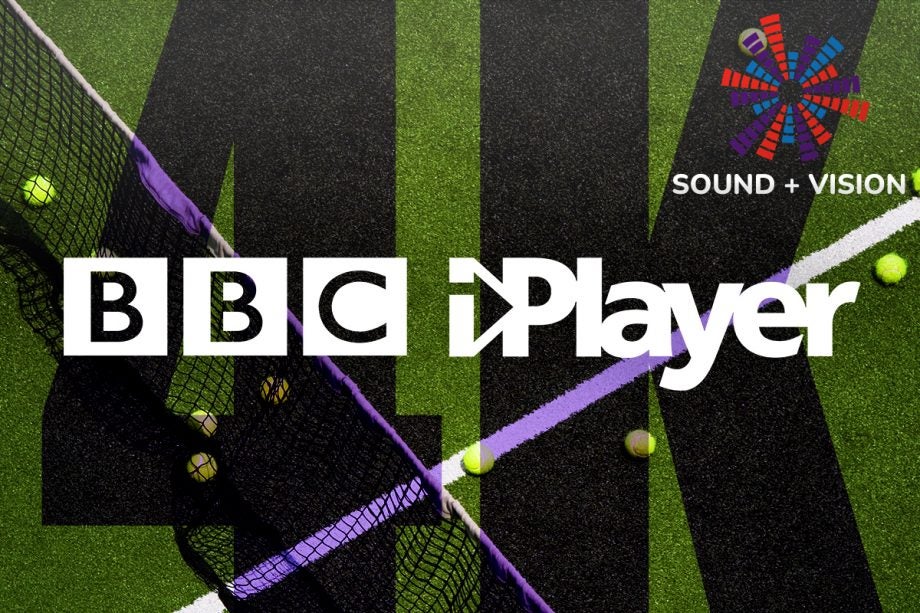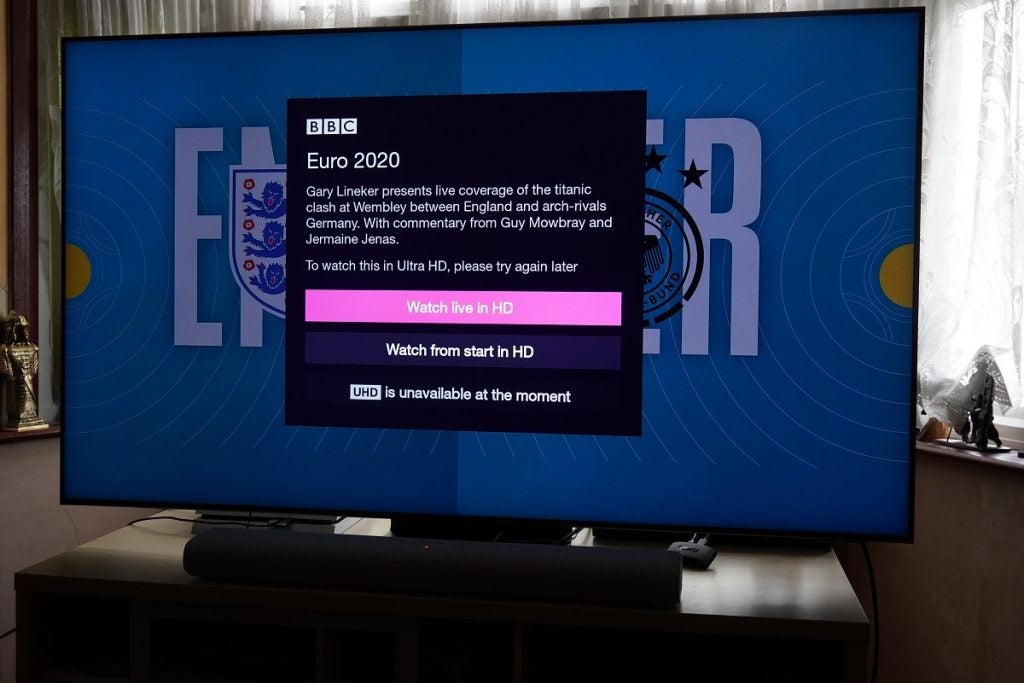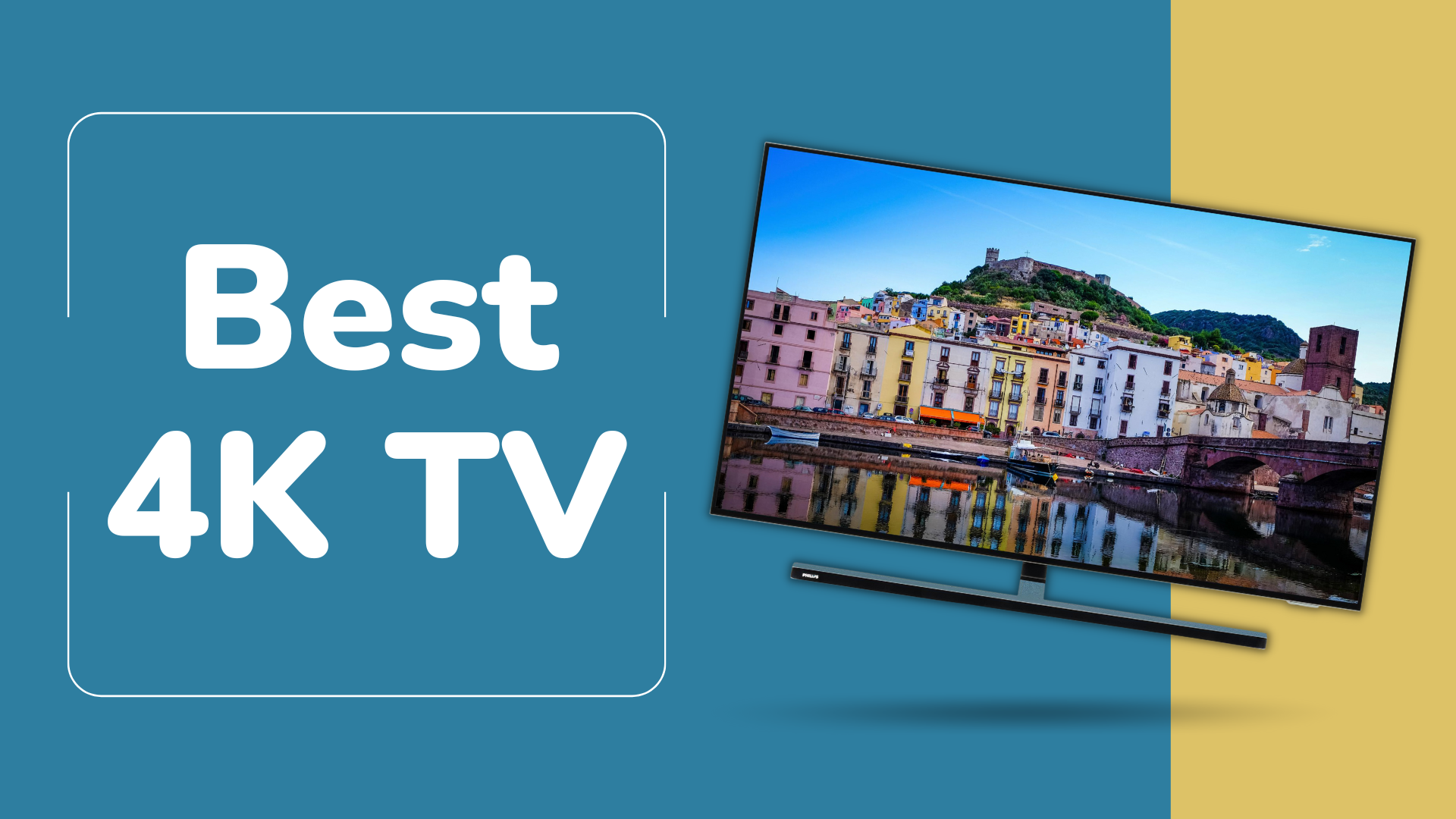Sound and Vision: 4K has been great for iPlayer, but more progress is needed

The BBC has delivered the goods with its (delayed) 4K summer of sports. After missing a year, Wimbledon is back in 4K HLG HDR, as is Euro 2020 and, unless I’m mistaken, the 2020 Tokyo Olympics will mark the first time the BBC has shown that event in 4K, too.
And yet, the feeling exists with 4K HDR content that the Beeb is either holding itself back or being held back by having to co-produce with another partner.
Rather than create a new channel, the BBC uses iPlayer as its mode of disseminating 4K content, using the efficient HLG (Hybrid-Log Gamma) HDR format it developed with Japanese public broadcaster NHK as a means of adding greater contrast and punchier, natural-looking colours.

It’s been a long time since the BBC waded into 4K HDR waters with Blue Planet II in 2016, and only 10 more programmes (not including sports or Royal weddings) have followed in its wake.
It’s a list that includes The Pursuit of Love, Attenborough’s Life in Colour, Black Narcissus, Doctor Who: Revolution of the Daleks, Dynasties, His Dark Materials, Dracula, A Perfect Planet, The Queen’s Christmas Broadcast and Seven Worlds, One Planet.
That’s not as much content as you would have hoped for, and a number of those series are co-productions with another company such as Amazon, HBO and Netflix.
What’s more, there is 4K HDR programming that could make it to iPlayer but hasn’t. The Claes Bang-starring Dracula is no longer available (it’s ambled over to Netflix); Giri/Haji, The Serpent and series 6 of Peaky Blinders are on both iPlayer and Netflix, but only the latter has them in 4K HDR.
It seems the BBC still considers itself to be in the trial phase of getting 4K out to the masses. It’s well ahead of the likes of ITV and Channel 4, both of whom are still living in the 1080p age, but the Beeb has been left behind by the likes of Sky, BT Sport and various streaming services, all of whom are building ever-growing libraries for subscribers to watch on their brand new 4K TVs.
Other issues pop up in terms of the restriction of the number of viewers permitted to watch a stream, which feels archaic. If you don’t jump on the stream early enough, or leave it and come back later, you lose access to the UHD feed.

And there are streaming products either not ratified by BBC’s UHD trials or experiencing issues. Both the Roku Streambar and Amazon Fire TV Stick with Alexa are stated as supporting HLG, but currently neither stream iPlayer in 4K, while UHD content is unavailable on the PS4 Pro’s iPlayer app.
I can sympathise with issues surrounding expense and more households needing access to better internet speeds. The BBC has bigger goals than the likes of Netflix or Disney+; it is a public broadcaster that provides value – and it provides a lot of it – but it needs to make that next hop, skip and jump to regular 4K scheduling instead of a drip-feed that relies on major sports tournaments to spark interest. At this rate, even 8K streaming could get the jump if BT Sport and Samsung continue to push it.
There’s no doubt the BBC has built a robust service that consistently delivers impressive 4K HDR images. During Euro 2020 I’d instinctively open the iPlayer app thinking the match would be there, only to be met with disappointment it’s on ITV, and their app isn’t up to much.
The BBC has built an advantage it needs to press home. Adoption of 4K HDR will only go up if there’s more shows, films and sports produced in it, hopefully leaving vanilla 1080p displays in the past.
Back in 2018 the BBC wrote that 4K trials for the 2018 World Cup were “giving audiences yet another taste of the future”. It remains a future we’re still waiting to see.





